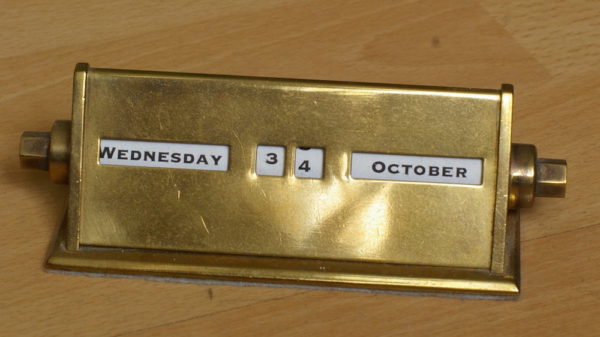Written by Technically Media CEO Chris Wink, Technical.ly’s Culture Builder newsletter features tips on growing powerful teams and dynamic workplaces. Below is the latest edition we published. Sign up to get the next one.
The owner revised at least twice what his company’s founding date was. He kept finding ways to push it back — their first customer, when they decided on the name. At one point he told me “when we started talking” about the idea for the company was really its founding date. We got into a bit of squabble about that.
Many startup founders use the same tactic but they go the other direction.
For them, new is cool. VC advisers talk about “shortening the timeline.” Founders often position their companies to be as young as possible so their growth looks all the more notable. Reaching $100K in monthly recurring revenue in three years is fine. Doing it in a single year is remarkable.
When the Technical.ly newsroom produces its annual RealLIST Startups, we select from the newest companies that we’re following most closely — and we choose from those three years or younger, simply because it’s helpful to have a distinction. This results in the occasional disagreement. “Yes, we listed our founding date as that year,” a founder might say, “but we pivoted and so really we just started this year.”
Of course, this drives attorneys batty. I mentioned writing this to a startup lawyer who promptly responded: “A company is exactly as old as its articles of incorporation say it is.”
I have personal experience with the conflict. We first launched this very site and I published the first Technical.ly post on February 9, 2009 — this one here — which we consider our founding date. But “we started talking” about our plan in 2008, choosing a name, a logo and an initial strategy. We didn’t actually incorporate as a business until 2010. Which do you think should be the founding date?
This is a messy detail for many companies — small and big. Microsoft was founded in 1975 but was not incorporated until 1981. Apple lists April 1, 1976 as its founding date, but incorporated a year later. Mark Zuckerberg launched Facebook in February 2004 and incorporated it that summer.
You might ask: Outside of early tax implications, why does a company’s founding date matter? Most companies don’t last long and those that do always create a simpler founding myth. Two reasons: A fixed date helps us make sense of how industries change, and how companies approach their founding is an insight into their culture and values.
The incorporation date is the most consistent and verifiable metric. That doesn’t always reflect the beginning of business activity — many founders test the promise of a company before ever incorporating. I say pick the date you want but only if it holds up to scrutiny. Technical.l ly doesn’t police this behavior much, though it’s a telling insight: I’ll always remember that entrepreneur extending his founding date more than once.
A sensible question to ask then is, “What do you consider your company’s founding date — and why?”
Sign up for the Culture Builder newsletterJoin the conversation!
Find news, events, jobs and people who share your interests on Technical.ly's open community Slack

Delaware daily roundup: Delmarva Power vendor stats; DelDOT's $15M federal grant; 50 best companies to work for

Delaware daily roundup: Over 4,000 Black-owned businesses uncovered; Dover makes rising cities list; a push for online sports betting

Philly daily roundup: East Market coworking; Temple's $2.5M engineering donation; WITS spring summit


